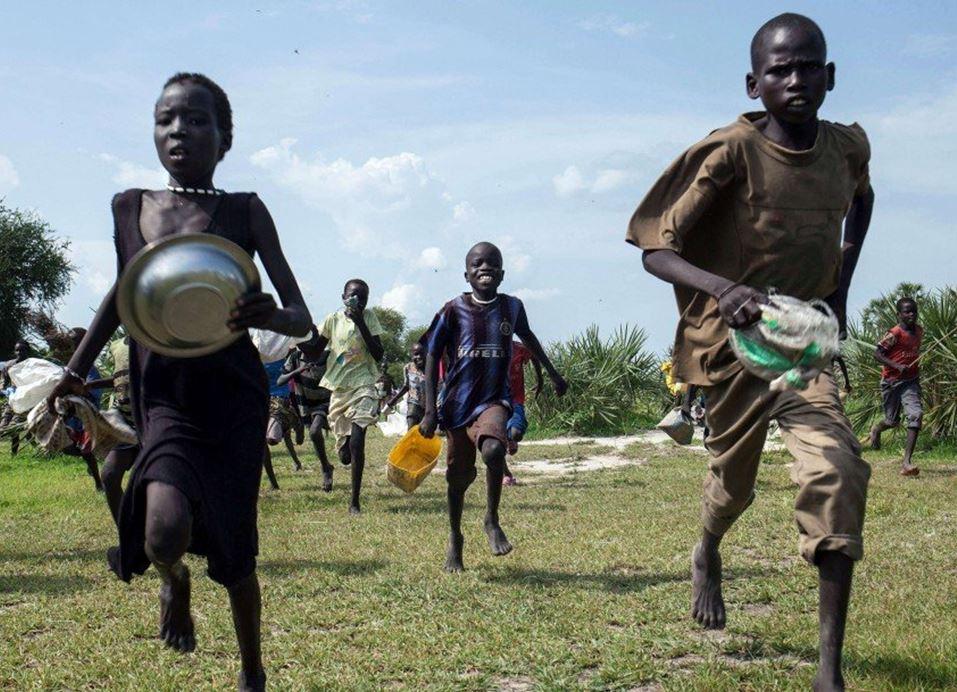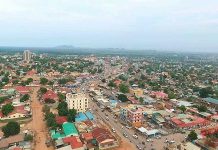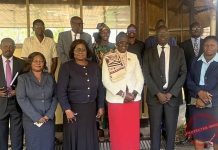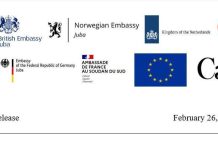Africa-Press – South-Sudan. The United Nations Children’s Fund (UNICEF) needs US$148.0 million to tackle the volatile humanitarian situation in South Sudan.
Early this year, UNICEF said it required US$183.6 million to meet the critical and lifesaving needs of children and women affected by disasters such as conflicts, cyclical droughts, flooding, and the residual impact of COVID-19 in South Sudan.
According to UNICEF Humanitarian Situation Report No. 166 for February 2022, the funding required will enable UNICEF to deliver services to children and women, protect their rights, and expand their opportunities to reach their full potential.
However, in February 2022, UNICEF’s funding gap stood at US$148.0 million. The new funds available, as of 2022, are 20 million, and the carry-over from 2021 is 15 million dollars.
According to the OCHA and HNO, 8.3 million people need humanitarian assistance, 4.5 million of whom are children, two million are internally displaced persons, and 1.4 million children are expected to suffer from acute malnutrition.
South Sudan is facing an unprecedented humanitarian situation caused by persistent conflict, climatic shocks, preventable disease, and rising costs.
Over 70 per cent of the men, women, and children in South Sudan will struggle to survive the peak of the lean season this year. Floodwaters have not receded in many areas, and displaced people are now living in precarious temporary settlements.
In such areas, reports have shown shocking levels of sexual and gender-based violence, major child protection risks, as well as increasing preventable diseases. The diseases include acute watery diarrhoea and pneumonia, which are attributed to limited services, high vulnerability, and poor living conditions.
In February, South Sudan further witnessed a high degree of subnational violence. Unity and Upper Nile states were marred by armed clashes between groups associated with the Kit-Gwang group, SPLM-IO, and SSPDF, causing high casualties. Renewed armed conflict in Southern Unity (Koch, Mayardit, & Leer) has displaced over 25,000 civilians and cut off essential services and basic needs.
In such areas, protection risks have increased, and they include family separation, child recruitment, abduction, and sexual and gender-based violence. Conflicts and violence have impacted humanitarian services, including the looting of health and nutrition facilities, the relocation of personnel, and the suspension of services due to violence, the report said.
UNICEF reported an increment in severe acute malnutrition across all the 10 states of South Sudan, but highest in Jonglei and Unity.
Between January and February 2022, at least 44 to 443 children with SAM (54% girls) were treated in inpatient and outpatient therapeutic programs.
About 23 percent of admissions were from Jonglei State, followed by Unity (17 per cent), and NBG (12 per cent). When compared to the same periods in 2020 and 2021, current admissions increased by 35% and 33%, respectively.
Performance indicators of SAM treatment were above acceptable minimum sphere standards, with a cure rate of 96.7%, a death rate of 0.2% and a defaulter rate of 1.8%. Infant and young child feeding counselling services reached 349,609 pregnant women and caregivers of children 0-23 months which is the highest in the last four years, UNICEF stated.
The report attributed the contributing factor to an increase in scaled-up nutrition response linked to the increased outreach in communities.
Child Protection In February 2022, UNICEF and partners reached 5,700 children (2,704 girls) with PSS recreational activities.
For More News And Analysis About South-Sudan Follow Africa-Press






